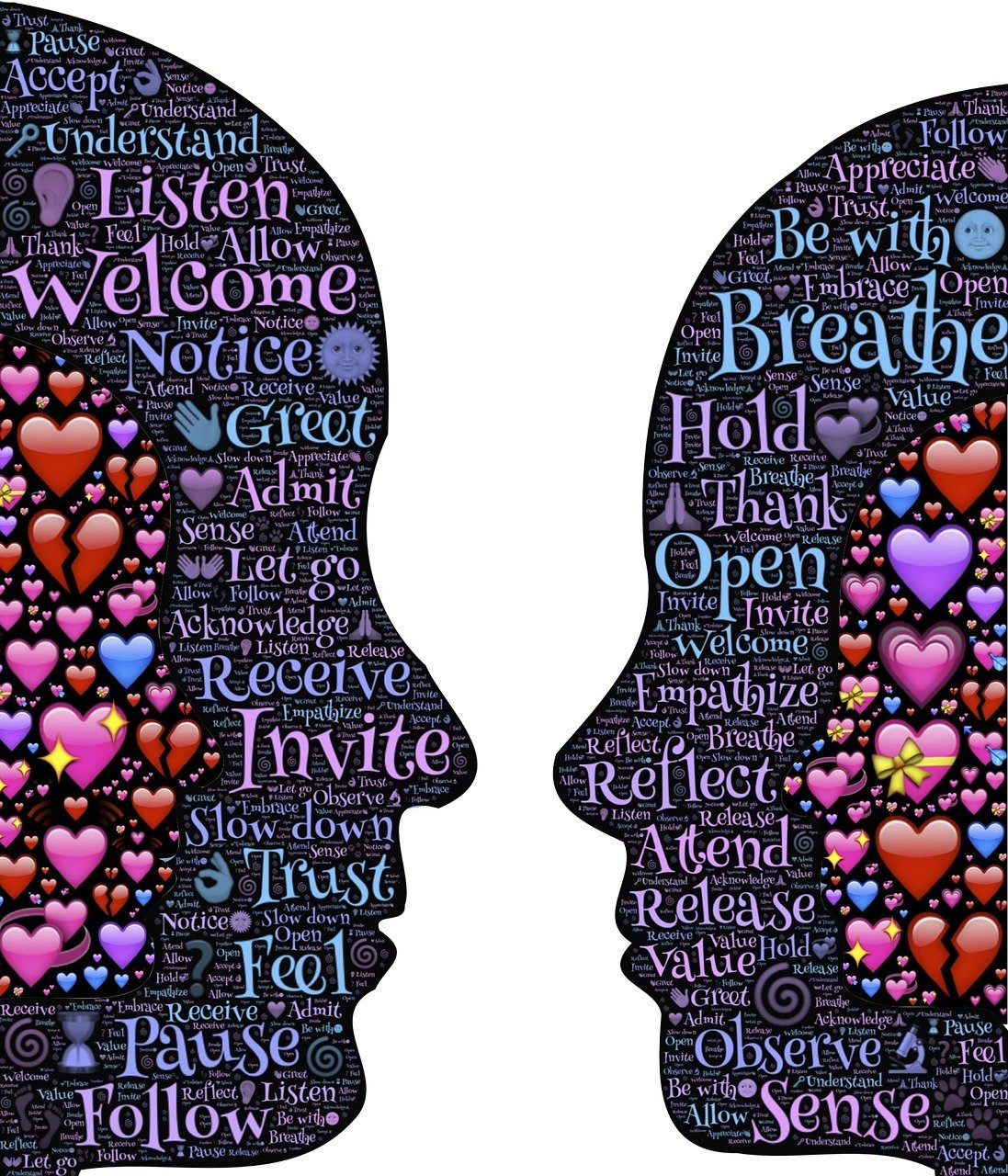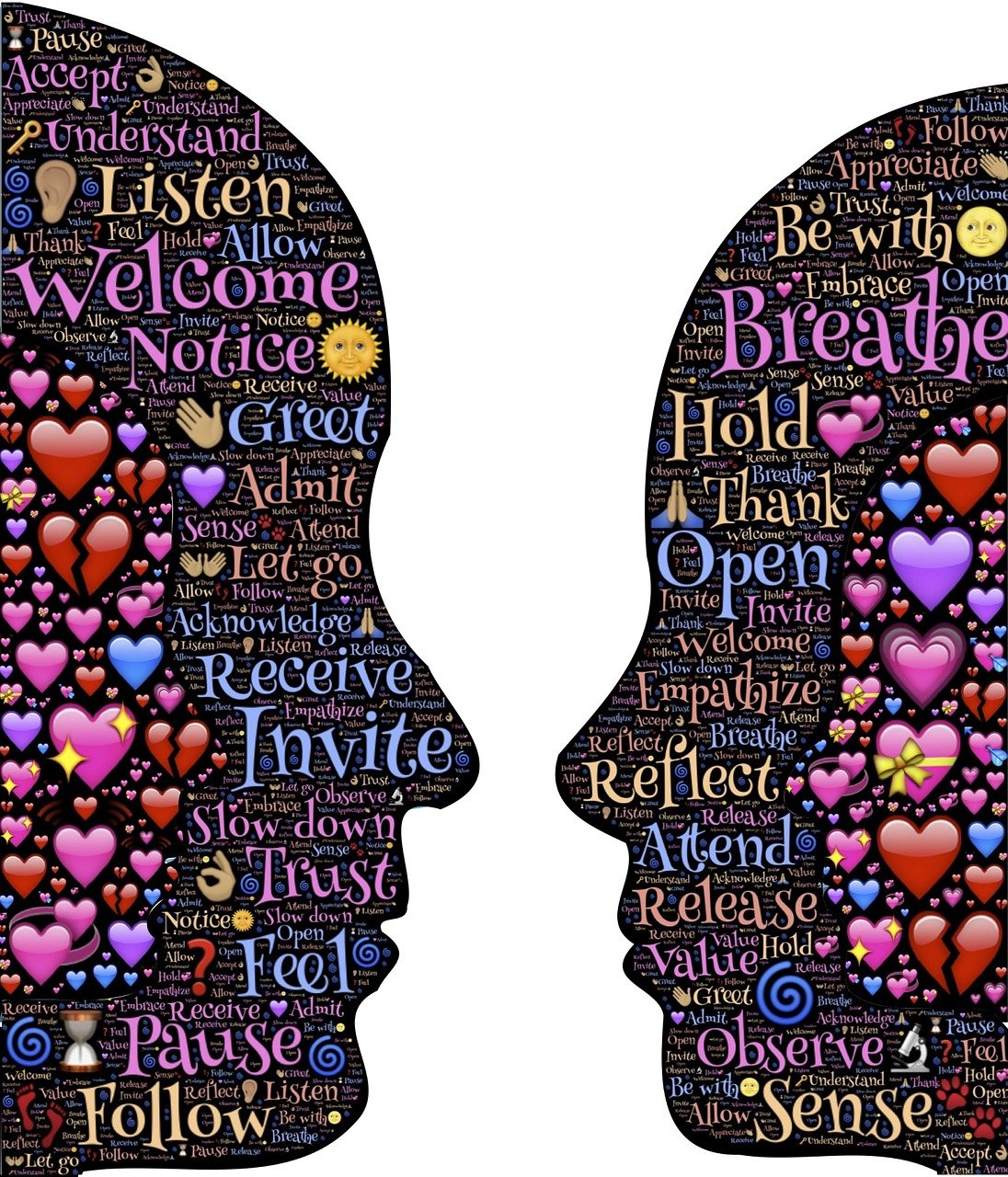
If you’ve ever wondered how to foster a space of openness and honesty in your relationship, then discovering effective ways to encourage open and honest communication with your partner is key. Building a foundation of trust and understanding through effective communication can pave the way for a healthy and thriving partnership. By acknowledging the importance of active listening, creating a safe environment for expression, and practicing empathy, you can foster a relationship where both you and your partner feel comfortable sharing your thoughts, feelings, and desires. So, let’s explore some practical strategies to enhance communication with your significant other and strengthen the bond between you two.
Get Your Romance Back On Check Click Here To Learn More!
Establishing Trust and Safety
Create a Safe Space
Creating a safe space is essential to encouraging open and honest communication with your partner. This means establishing an environment where both of you feel comfortable expressing yourselves without fear of judgment or ridicule. It involves creating an atmosphere of acceptance, understanding, and respect. One way to create a safe space is by assuring your partner that their thoughts, feelings, and opinions are valued and will be listened to without interruption. You can also set boundaries for communication, such as agreeing to avoid name-calling or yelling during discussions. By creating a safe space, you can lay the foundation for open and honest communication in your relationship.
Share Vulnerabilities
Building trust in a relationship requires a willingness to be vulnerable with your partner. By opening up about your fears, insecurities, and past experiences, you invite your partner to do the same. Sharing vulnerabilities helps create a deeper emotional connection and fosters a sense of trust and understanding. It is important to approach vulnerability with empathy and support, as this can strengthen the bond between you and your partner. By being open and honest about your own vulnerabilities, you encourage your partner to feel comfortable doing the same.
Listen Without Judgement
To encourage open and honest communication, it is crucial to listen to your partner without judgement. This means setting aside any preconceived notions or biases and truly hearing what your partner is saying. Avoid interrupting or jumping to conclusions before they have finished expressing themselves. By actively listening, you show respect and validation for your partner’s thoughts and emotions. It’s important to remember that listening without judgement does not necessarily mean you have to agree with everything your partner says, but rather that you are open to understanding their perspective.
Improving Emotional Intelligence
Recognize and Understand Emotions
Improving emotional intelligence involves developing a greater awareness and understanding of your own and your partner’s emotions. This can be achieved by paying attention to your own emotional responses and reflecting on their underlying causes. Similarly, endeavor to understand and empathize with your partner’s emotions by actively listening and seeking to understand their perspective. Recognizing and understanding emotions allows for more effective communication and promotes empathy between partners.
Practice Empathy
Empathy is the ability to understand and share the feelings of another person. By practicing empathy, you can create a deeper emotional bond with your partner and encourage open and honest communication. Put yourself in their shoes and try to imagine how they might be feeling in a given situation. Show genuine concern and interest in their emotions, and validate their experiences. Empathy fosters understanding and allows for more compassionate and effective communication within the relationship.
Validate Feelings
Validating your partner’s feelings is essential in encouraging open and honest communication. Validating means acknowledging and accepting your partner’s emotions, even if you may not necessarily agree with them. It involves expressing empathy, understanding, and acceptance, which helps your partner feel heard and understood. By validating their feelings, you create a safe space for them to express themselves openly and honestly, knowing that their emotions are respected and valued.

Get Your Romance Back On Check Click Here To Learn More!
Fostering Effective Listening Skills
Be Present and Attentive
Being present and attentive is crucial in fostering effective listening skills. When engaging in a conversation with your partner, make a conscious effort to focus solely on them and the conversation at hand. Put away distractions such as phones or tablets, and give your partner your undivided attention. This shows your partner that you value their thoughts and opinions and that you are fully engaged in the conversation. Being present and attentive allows for a deeper connection and encourages open and honest communication.
Avoid Interrupting
Interrupting your partner during a conversation can hinder their ability to express themselves openly and honestly. It can make them feel unheard or dismissed. To foster open and honest communication, it is important to refrain from interrupting. Instead, let your partner finish speaking before you respond. This shows respect for their thoughts and ensures that they have the opportunity to fully articulate their thoughts and feelings. By actively listening without interrupting, you create an environment where your partner feels comfortable sharing their thoughts openly.
Ask Open-Ended Questions
Asking open-ended questions is a way to encourage your partner to share more openly. Open-ended questions cannot be answered with a simple “yes” or “no” and require a more detailed response. By asking open-ended questions, you invite your partner to share their thoughts, feelings, and perspectives more fully. This can lead to more meaningful and open conversations, as well as a deeper understanding of each other. Open-ended questions also demonstrate your curiosity and genuine interest in your partner’s experiences and feelings.
Encouraging Open Expressions
Encourage Openness
Encouraging openness in your relationship creates an atmosphere where both partners feel comfortable expressing themselves authentically. This involves actively welcoming and appreciating your partner’s thoughts, opinions, and emotions. Make it known that their perspectives are valued and that open communication is essential for maintaining a healthy relationship. Encouraging openness can be done through verbal affirmations, such as expressing appreciation for their honesty or genuine interest in their thoughts and feelings.
Create a Judgment-Free Zone
To encourage open expressions, it is important to create a judgment-free zone within your relationship. This means refraining from criticizing or belittling your partner’s thoughts or emotions. Instead, strive to understand and accept their perspectives, even if they differ from your own. Responding without judgment creates a safe space where open communication can thrive. Remember, every person is entitled to their own beliefs and experiences, and fostering a judgment-free zone promotes trust, understanding, and open dialogue in your relationship.
Promote Self-Expression
Promoting self-expression is essential in encouraging open and honest communication. Encourage your partner to express their thoughts and emotions openly without fear of criticism or rejection. This can be done through active listening, offering support and understanding, and validating their feelings. Additionally, create opportunities for self-expression by engaging in activities that allow for creative expression, such as journaling, painting, or music. By promoting self-expression, you create an environment where both partners feel comfortable and encouraged to communicate openly and honestly.

Effective Conflict Resolution
Use I-statements
Using “I-statements” is a powerful tool in conflict resolution. Instead of pointing fingers or blaming your partner, express your feelings and needs using “I” messages. For example, instead of saying, “You never listen to me,” you can say, “I feel unheard when I don’t feel like my opinions are valued.” This approach helps to avoid accusatory language and promotes understanding and constructive dialogue. By using “I-statements,” you communicate your emotions and needs without attacking or blaming your partner, leading to more effective conflict resolution.
Focus on the Issue, Not the Person
During conflicts, it is essential to focus on the issue at hand rather than attacking or criticizing your partner personally. Address the problem or disagreement without making it about your partner’s character or personality. By shifting the focus to the issue, you promote a more objective and solutions-oriented mindset. Remember, attacking the person instead of addressing the issue can escalate conflicts and hinder open and honest communication. By separating the issue from the person, you can work together to find a resolution.
Work Towards Compromise
Conflict resolution requires a willingness to work towards compromise. Instead of focusing on “winning” an argument, approach conflicts as opportunities for growth and understanding. Seek common ground and mutually agreeable solutions. This involves active listening, considering your partner’s perspective, and finding ways to meet each other’s needs. Compromise may involve finding middle ground, exploring alternative solutions, or making concessions. By working towards compromise, you foster open and honest communication and strengthen your relationship.
Regular and Honest Communication
Schedule Quality Time
Regularly scheduling quality time is essential in fostering open and honest communication. Life can get busy, and it’s easy to let communication take a backseat. By setting aside dedicated time for meaningful conversations, you prioritize and nurture your relationship. Use this time to discuss your feelings, experiences, and any concerns or joys you may have. By making quality time a priority, you create space for open and honest communication to flourish.
Check-In Regularly
Regular check-ins are crucial for maintaining open and honest communication in your relationship. Set aside specific times to check in with each other and discuss how you are feeling and how the relationship is going. This can be as simple as asking each other, “How are you doing?” or “Is there anything on your mind that you’d like to talk about?” Regular check-ins allow you to address any issues or concerns before they escalate and provide an opportunity for open communication on a consistent basis.
Share Appreciation and Gratitude
Expressing appreciation and gratitude is an important aspect of open and honest communication. Take the time to acknowledge and express gratitude for your partner’s efforts, support, and love. This can involve thanking them for specific actions or qualities that you appreciate or simply expressing your love and gratitude for having them in your life. Sharing appreciation and gratitude fosters positive communication, strengthens your bond, and creates an environment where open communication can thrive.

Avoiding Assumptions
Ask for Clarification
Making assumptions can lead to misunderstandings and hinder open and honest communication. If something your partner says confuses you or leaves you with doubts, don’t hesitate to ask for clarification. Instead of assuming you understand their perspective, seek further information to ensure that you have a clear understanding. Asking for clarification shows your partner that you value their thoughts and opinions and are committed to understanding them fully.
Avoid Mind Reading
Attempting to read your partner’s mind can lead to misinterpretation and strained communication. Instead of assuming you know what your partner is thinking or feeling, ask them directly. Mind reading often stems from projecting our own thoughts and emotions onto others, which can create unnecessary tension and conflict. Openly asking your partner how they are feeling or what they are thinking allows for open and honest communication, dispelling assumptions and promoting understanding.
Practice Active Listening
Active listening is a skill that can help avoid assumptions and promote open and honest communication. It involves fully engaging with your partner’s words, both verbally and non-verbally. Provide your full attention, make eye contact, and use body language to show that you are actively listening. Additionally, paraphrase and repeat back what your partner has said to ensure understanding. By practicing active listening, you reduce the likelihood of making assumptions and create space for open and honest communication.
Setting Boundaries
Establish Personal Boundaries
Establishing personal boundaries is crucial for maintaining open and honest communication. Each individual has their own limits and preferences when it comes to communication. Take the time to reflect on your own boundaries and clearly communicate them to your partner. This might include setting boundaries around personal space, alone time, or topics that are off-limits for discussion. Establishing and respecting personal boundaries ensures that both partners feel comfortable and safe during communication exchanges.
Respect Each Other’s Boundaries
Respecting each other’s boundaries is equally important for fostering open and honest communication. When your partner communicates their boundaries, make a conscious effort to honor and respect them. This involves refraining from pushing or pressuring your partner to cross their boundaries and instead creating an environment where their boundaries are recognized and valued. Respecting each other’s boundaries promotes trust, understanding, and open communication within the relationship.
Communicate Boundaries Clearly
Clear communication of boundaries is essential for open and honest communication. Clearly articulate your boundaries to your partner, ensuring that they understand your limits and preferences. Use “I” statements to express how certain behaviors or discussions make you feel, and be specific about what you are comfortable with and what you are not. Encourage your partner to communicate their boundaries as well, fostering an environment of mutual respect and understanding.

Managing Expectations
Discuss Relationship Expectations
Managing expectations is key to avoiding misunderstandings and fostering open and honest communication. Take the time to discuss and align your expectations for the relationship. This might include discussing expectations around communication frequency, quality time, decision-making, and individual goals. Understanding each other’s expectations allows for open dialogue and promotes a shared understanding of the relationship’s dynamics and goals.
Be Realistic and Flexible
When managing expectations, it is important to be realistic and flexible. Recognize that each partner brings their own background, experiences, and communication style to the relationship. Be open to adjusting and adapting your expectations as you navigate the relationship together. Discuss any discrepancies or conflicts that arise due to differing expectations and work towards finding a compromise that respects both partners’ needs and desires. Being realistic and flexible helps create an environment of understanding and open communication.
Reevaluate Expectations Regularly
Relationship dynamics and expectations can change over time. To maintain open and honest communication, it is important to regularly reevaluate expectations with your partner. This may involve checking in periodically to see if expectations are still aligning or if adjustments need to be made. Reevaluating expectations ensures that both partners feel heard and understood, and opens up space for ongoing communication and growth within the relationship.
Seeking Professional Help
Consider Couples Therapy
Sometimes, in order to encourage open and honest communication, seeking professional help can be beneficial. Couples therapy provides a neutral and safe space for partners to express their thoughts and feelings, address any underlying issues, and improve communication skills. A trained therapist can provide guidance and support, offering insights and strategies to navigate challenges and foster open and honest communication within the relationship. Couples therapy can be a valuable resource for couples looking to strengthen their bond and enhance communication.
Attend Relationship Workshops
Relationship workshops or seminars can offer valuable tools and techniques to encourage open and honest communication. These workshops often cover topics such as effective communication skills, conflict resolution strategies, and building emotional intimacy. Attending such workshops with your partner allows you both to learn and practice new communication techniques and gain insights from relationship experts. By investing in your relationship through educational opportunities, you can further enhance open and honest communication with your partner.
Read Self-Help Books
Self-help books focused on relationships can provide guidance and insights into promoting open and honest communication. These books often offer practical advice, exercises, and scenarios that can help you and your partner improve your communication skills. Look for books authored by reputable relationship experts and choose titles that resonate with your specific needs. By reading self-help books together, you provide yourselves with resources and tools to strengthen the communication in your relationship.
In conclusion, encouraging open and honest communication with your partner is essential for building a strong and healthy relationship. By creating a safe space, practicing empathy, and fostering effective listening skills, you can establish an environment of trust and understanding. Encouraging open expressions, using effective conflict resolution techniques, and engaging in regular and honest communication creates opportunities for growth and connection. Avoiding assumptions, setting boundaries, managing expectations, and seeking professional help when needed further promote open and honest communication within the relationship. With these strategies and a commitment to communication, you can cultivate a relationship grounded in openness, trust, and mutual understanding.




